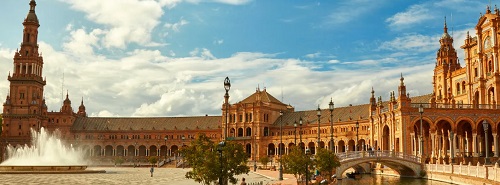Is Morocco Safe?
Know if Morocco is safe for tourists and learn travel safety tips, local laws, and how travel insurance can help ensure an enjoyable and smooth trip.
Is Morocco Safe for Tourists? Essential Travel Tips and Safety Advice
-
Morocco is generally safe for tourists who follow local laws and stay aware of their surroundings.
-
Remote and border regions may have limited services, so travelers should plan ahead and stay updated via local media.
-
Travel insurance and emergency preparedness help visitors handle unexpected situations and enjoy their trip with confidence.
Morocco is a vibrant destination filled with colorful markets, ancient cities, and stunning landscapes. From the lively streets of Marrakech to witnessing the beauty of unique blue-washed buildings, travelers asking, "Is Morocco safe?" will find that with preparation and awareness, it can be a welcoming and enjoyable country to visit. Moroccan authorities, along with helpful travel advice, make it possible to enjoy this culturally rich destination with confidence.
Morocco’s Safety Overview
Morocco is generally safe for tourists, with many visitors enjoying trips to its major cities and famous tourist attractions each year. Moroccan authorities work diligently to maintain security, especially in tourist areas, religious sites, and around government buildings.
The U.S. Department of State currently suggests travelers exercise increased caution due to potential risks, but this is a common advisory for many destinations. Local government facilities, tourist locations, and transportation hubs are typically well-monitored. Additionally, official tourist guides are widely available in larger cities to help visitors navigate the cultural and logistical aspects of their stay.
By staying aware of your surroundings, following travel advice from local media, and adhering to local laws, travelers can enjoy Morocco’s unique experiences.
Petty Crime and How to Protect Personal Belongings
Like many popular tourist destinations, Morocco can experience petty crime, especially in major cities and crowded tourist areas. Incidents such as pickpocketing, aggressive begging, and petty theft are more common in busy markets, transportation hubs, and areas that attract large crowds.
Tourists report that simple precautions can make a big difference. Carry personal belongings in secure, zipped bags and avoid displaying valuables. Keep passports, extra cash, and vehicle documents locked in your hotel room’s safe. When exploring, be aware of your surroundings, especially in poorly lit areas or crowded places.
Additionally, Moroccan authorities encourage visitors to report any incidents at the nearest local police station, where staff are accustomed to assisting foreign nationals. Staying vigilant and following these safety measures can help ensure a smooth experience while you visit Morocco.
Terrorism-Related Risks
While Morocco remains a generally safe destination, travelers should stay informed about potential terrorism-related risks. According to the U.S. Department of State, Extremist groups sometimes aim to draw attention by targeting tourist locations, transportation hubs, government buildings, and venues that attract Western interests or large crowds.
The Moroccan government has strong security measures in place, particularly in areas frequented by visitors. Travelers can further protect themselves by staying alert, avoiding demonstrations or gatherings that may attract large crowds, and monitoring local media for updates.
Visiting Morocco with awareness and preparation allows travelers to enjoy its rich culture and vibrant cities while taking reasonable safety precautions.
Safety for Female Travelers
Female travelers must explore by staying aware of local customs and cultural expectations. As a Muslim country, Morocco values modesty, so following local dress codes helps prevent unwanted attention and shows respect for the community.
In Morocco, female travelers are encouraged to exercise caution when walking alone in larger cities or remote regions, particularly at night or in areas with poor lighting. Using official tourist guides can help navigate unfamiliar spaces and local practices.
If assistance is needed, visitors can approach the local police station or seek help from Moroccan authorities. By staying mindful and respecting local laws, women can have a memorable time in Morocco.
Travel Safety in Remote and Border Areas
Morocco’s southern and border areas and remote regions offer incredible landscapes, including the stunning Atlas Mountains and the expansive Western Sahara. However, these areas can pose risks due to extremely limited services and potential travel restrictions.
Before traveling to these regions, it’s wise to check the latest travel advice from local media and consult the local authorities or consular services if needed. Avoid areas that may attract large crowds or where parties involved in local disputes could cause tension.
Travelers are advised to carry vehicle documents, be prepared with an accident report form, and follow local guidance. By planning ahead, visitors can enjoy these unique and beautiful areas safely.
Moroccan Law and Cultural Etiquette
Understanding Moroccan law is essential when you travel to Morocco. Moroccan citizenship takes precedence in legal matters, meaning if you have dual citizenship with a Moroccan father, local law may apply differently. Strict laws prohibit illegal drugs, pornographic material, and public displays of affection, especially involving same-sex relationships.
Visitors should also show courtesy when visiting religious sites. Taking photographs near government buildings or local government facilities may be restricted. By following local laws, being aware of their surroundings, and showing cultural respect, travelers can avoid misunderstandings and enjoy Morocco’s hospitality.
Important Travel Safety Tips
To ensure a smooth trip when you visit Morocco, a few simple safety measures can make all the difference.
-
Drink bottled water to stay hydrated and avoid illness, especially in big cities and remote regions.
-
Follow local laws and respect religious sites and local dress codes in this Muslim country.
-
Secure personal belongings and be cautious of petty crime in crowded places like markets and transportation hubs.
-
Carry vehicle documents at all times, and know how to complete an accident report form if needed.
-
Store valuables in your hotel room safe, and be mindful of aggressive begging and unwanted attention in tourist locations.
Travel Insurance and Emergency Preparedness
Before you enter Morocco, having travel insurance can help with unexpected situations like medical emergencies or trip cancellations. While Morocco is generally safe, natural disasters or unforeseen issues may arise with little or no warning.
In case of emergencies, visitors can seek help from local authorities, visit the nearest local police station, or contact consular services for assistance. Also, stay updated through local media about any affected areas.
If you are a US citizen, you can also enroll with Smart Traveler Enrollment Program (STEP) to get the latest information before visiting a particular area. In case you are driving, be sure to carry an accident report form as it will be helpful in filing collision damage waiver claims with your travel insurance provider.
By preparing ahead and taking practical steps, travelers can enjoy Morocco with peace of mind.
Conclusion
Morocco is a destination filled with rich culture, stunning landscapes, and warm hospitality. While it's natural to ask, "Is Morocco safe for tourists?" visitors will find that by exercising caution, travel can be both enjoyable and smooth. Whether exploring major cities, visiting tourist attractions, or adventuring in remote regions, preparation and awareness help ensure a memorable and positive experience.
FAQs
1. Are there areas in Morocco where photography is restricted?
Yes, photographing government buildings, local government facilities, and certain religious sites may be restricted, so it’s best to ask permission first.
2. How do I report a lost passport or theft in Morocco?
Visit the nearest local police station to file a report and then contact your embassy or consulate for assistance with replacement documents.
3. Is it safe for tourists to drive in Morocco?
Driving is common for tourists, but it’s important to carry valid vehicle documents, know local driving rules, and complete an accident report if needed.

Travel Assistance Wherever, Whenever
Speak with one of our licensed representatives or our 24/7 multilingual insurance advisors to find the coverage you need for your next trip. Contact Here


